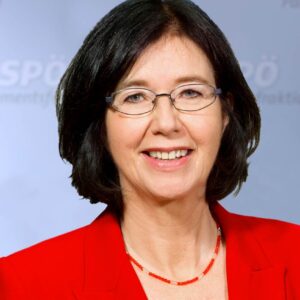Taking place a week before the International Day of Human Rights, NGO’s Women for World Peace (WFWP) and the René Moawad Foundation organized a live, international zoom panel to discuss world peace and women’s leadership on Friday December 3rd. The “Securing a Culture of Peace: WOMEN’S GLOBAL LEADERSHIP AND MENTORING” conference united voices of varying ages and roles in a subtle nod to the overarching message of strength in unity and inclusiveness.

Introduced by Ms. Carolyn Handschin, president of the WFWP International Vice President for the Europe region and Director of Office for the UN Relations, the online conference was centered on female leadership, peace sustainability and intergenerational mentoring. Bridging the generational gap, the conference was structured so as to allow both senior role models and young voices to contribute and exchange ideas. In collaboration with the WFWP, several other organizations joined the discussion including the International Association of First Ladies for Peace, the René Moawad Foundation, the Sahel and the Women’s Federation for World Peace.

Launching the discussion, the first speaker was H.E. Nayla Moawad, First Lady of Lebanon in 1989 and founder René Moawad Foundation. Moawad shared her future hopes for women and their increased participation in politics, emphasizing the significance that female role models represent for society, particularly for the youth. “If we are together, we can do a lot for peace,” said Moawad.
Also notable was Hon. Emanuele del Re, EU Special Representative of the Sahel, who pre-recorded her message from Italy. Despite our progress, del Re acknowledged that women continue to be shadowed by men even in the highest of positions. However, del Re believes that through support and inclusive mentoring we can “create social dynamics that can foster change in society.”
Perhaps the most pungent speaker was Mag. Christine Muttonen, president of the OSCE Parliamentary Assembly from 2016 to 2017. Muttonen said that she sensed an evident imbalance between men and women’s treatment from a very young age and, unfortunately, continues to sense it today. Too many women are prevented from fulfilling their potential or discouraged from being ambitious as a result of archaic societal structures. Recalling the last UN general assembly, Muttonen criticized how few women were present and observed that 52 men delivered their speeches before a single woman was heard, “the higher you get, the less women you find.” Moreover, Muttonen further illustrated her argument with the #wikigap example: there are approximately four times more articles written on men as there are on women present in Wikipedia. Concluding on a powerful call for change, she asked. “we women are half of the population, so why not claim half of the power?”
Following Mag. Christine Muttonen, speakers Hon. Dr. Maria Cavaco Silva, Hon. Dr. Neziha Labidi and Hon. Edlira Ҫepani all reiterated the need for equal rights and increase of powerful female role models to teach and inspire our future leading women. Although Hon. Edlira Ҫepani, National Coordinator for the Women’s Network “Equality in Decision Making,” was proud of women’s multifold achievements in Albania, she stressed everyone not to be deceived by the increasingly positive numbers because women continue to face obstacles like stereotypical mentalities in the workplace. Enforcing her message of strength in unity, Ҫepani left us with an Albanian expression: “an eagle cannot fly with only one wing.”

Transitioning into the youth speaker’s section, the youth speakers were introduced by Ms. Kyung In van de Ven Oliveira, representative of the WFWP from Amsterdam. Joining the conversation, Mrs. Marlies Ladstätter from Austria; the only male speaker, Mr. Oussama Kebir from Tunis, and Ms. Elarinda Xhindi from Albania. While all three of the young speakers were consistent in their assertion that gender equality is an equal right and that having mentors paving the way is crucial for a peaceful and sustainable society, Ms. Elarinda Xhindi especially stood out with her message that change begins on a local scale.
The subsequent roundtable discussion enabled all speakers to interact with one another in the spirit of mentoring and bridging the intergenerational gap. Answering Mrs. Marlies Ladstätter’s question on how women in the modern era can achieve success, Mag. Christine Muttonen emphasized the relativity of the term “success” but said that, from her own personal experience, having a group of friends in which to talk openly and reflect is key.
On a concluding note, the conference ended with a discussion as to why mentoring is a mutually beneficial relationship. The speakers were consistent in their verdict: mentors are sources of inspiration because of their experience, but fostering growth and education is important for everyone for they will be the leaders of tomorrow.












